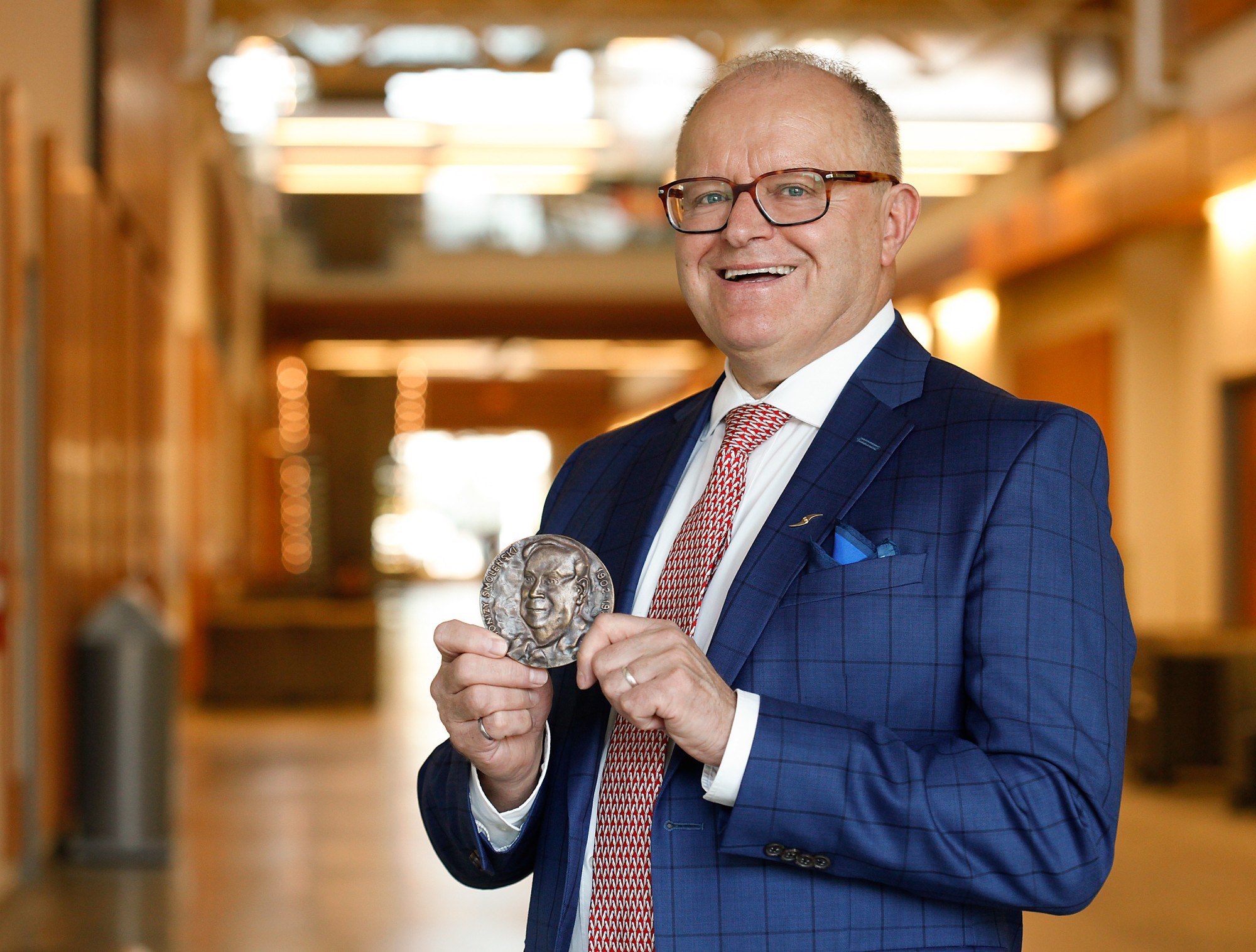
Receiving the Dionizy Smoleński Medal from the Polish Academy of Sciences is a special honour for Windsor engineering professor Andrzej Sobiesiak, who studied with professor Smoleński as an undergraduate in Warsaw.
The head of the UWindsor Department of Mechanical, Automotive and Materials Engineering has been recognized by the Polish Academy of Sciences for his outstanding contributions towards advances in the knowledge of combustion process and technologies.
Andrzej Sobiesiak received the Dionizy Smoleński Medal September 5, during a joint meeting of the Polish Section of the Combustion Institute and XXIII International Symposium on Combustion Processes in Rynia near Warsaw, Poland after delivering a keynote lecture on “Internal Combustion Engines Fuelled with Solutions of Liquid and Gaseous Fuels.”
At the award ceremony, Dr. Sobiesiak was cited for his research on droplets combustion in microgravity, development and work on flameless combustion and ultra-low NOx burner, Homogeneous Charge Compression Ignition (HCCI) engines charged with fuels derived from biomass and unique split-cycle engine fuelled with natural gas.
The award is named in memory of Dionizy Smoleński, a former rector at the Warsaw University of Technology and a specialist in the theory of combustion, explosives, solid rocket propellants and ballistics.
“I am deeply moved and honored by receiving the Smoleński medal as I remember attending Professor Smoleński’s lectures on rocket propellants as an undergraduate student in Warsaw,” Sobiesiak said. “Here in Windsor, when I teach aerospace propulsion courses, I still use some material from his pioneering research on rocket fuels.”
The Polish Academy of Sciences is a state-run scientific institution founded in 1952. It is composed of national and foreign members. The academy functions as a learned society acting through an elected corporation of top scholars and research organizations by means of its numerous scientific establishments. It has also become a major scientific advisory body through its scientific committees.
